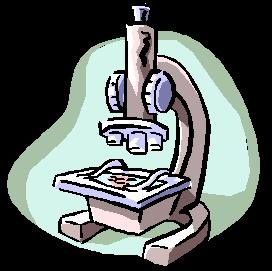Here in St. Louis, lots and lots of people are working tirelessly to explain the meaning of life -- not in the philosophical sense, but literally: How does the universe work? Here are some of the discoveries they've made this month, as reported in Riverfront Times and Daily RFT:
It may be hard to remember now that it's freezing cold with a chance of snow, but a few weeks ago, the weather was warm. Really warm. Like close to 80 degrees. It was also one of the driest falls on record. A National Weather Service meteorologist told us why.
Researchers at the University of Missouri discovered that ancient Amazonian women had multiple sex partners to ensure that their kids had multiple dads and providers.
Another group of Mizzou researchers learned that college students are more likely to view beer as harmless if it comes in a can with school colors.
The DEA finally got around to banning K2, otherwise known as synthetic pot. But kids are resourceful: They've discovered Ivory Wave, bath salts that can be used used like synthetic cocaine.
Ibogaine is a hallucinogen that has been proven to help people kick addictions. (It's even been featured on Law and Order: SVU!) So why aren't big pharmaceutical companies aren't trying to manufacture their own version?
Barnes Jewish Hospital has decided it's sick of repeat customers and is trying to figure out ways to get patients permanently well so they don't have to come back.
A Washington University scientist received a grant from the Bill and Melinda Gates Foundation to develop a new contraceptive gel that uses bee venom to kill both sperm and the HIV virus. In related news, Pope Benedict XVI finally acknowledged that condoms can prevent the spread of HIV.
The Fertility Partnership, a low-cost fertility clinic in St. Peters, produced its first two babies, twin boys. A week later, it delivered a second set of twins, also boys. It's unknown whether any of these babies donated their umbilical cord blood, as a nine-month-old in Belleville did.
Engineers descended on the Arch to find out what is causing rust on our beloved civic monument and how to stop it.
And, finally, those humans who insist on the superiority of cats felt vindicated when a Mizzou study demonstrated that the purr of a feline lowers blood pressure.






